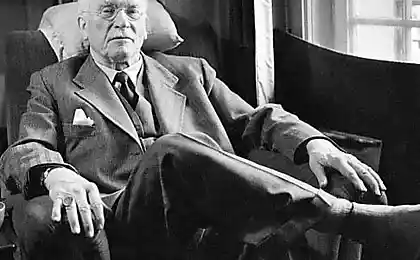304
To see the true face of a person, pay attention to 2 things

Human nature is multifaceted and complex. For centuries, philosophers, writers, and scientists have tried to unravel the mysteries of the human soul. The Swiss psychoanalyst Carl Gustav Jung proposed the concept of “Shadows” – the part of the personality that we hide even from ourselves. But there are two simple and effective indicators that allow you to see the true essence of a person even behind the most impenetrable mask.
“The way a man treats those who can give him nothing in return, and the way he behaves when he is given power, shows who he really is, not who he wants to appear to be.”
Indicator One: The attitude towards those who can give nothing in return
This rule, which has guided the greatest minds and influencers from Winston Churchill to Mark Zuckerberg, reveals the true nature of human relationships. It is known as the waiter’s rule and has deep psychological roots.
The Waiter Rule and its Psychological Basis
According to this rule, the true character of a person is manifested in the way he treats people on whom he does not depend and who have no power or influence - waiters, cleaners, drivers, couriers. These interactions reveal a person’s true attitude toward others when there is no social or material incentive to be courteous.
In the context of Jung’s “Shadow” theory, arrogance and contempt for “insignificant” people are often a projection of one’s own inferiority complexes. A person who humiliates a waiter subconsciously compensates for his own insecurity by projecting his Shadow onto others.
Princess Diana was known for her sincere and warm attitude to the staff. Her former chef Daren McGrady recalled how she would often come into the kitchen to thank the staff and ask about their lives. This reflected her genuine concern for people regardless of their social status.
Bill Gates, despite his huge fortune, is known for modesty and respect for staff. Former Microsoft employees often say that he remembered the names of even temporary employees and treated them with the same respect that he treated top managers.
Scientific substantiation of the “rule of the waiter”
Modern research in social psychology confirms the validity of this rule. In 2012, researchers from the University of California found a correlation between how a person treats service personnel and their propensity for ethical behavior in other areas of life.
How to apply the “waiter rule” in everyday life:
- Pay attention to the way your new friend talks to waiters, janitors, taxi drivers
- Watch whether the tone and manner of communication of a person changes depending on the status of the interlocutor.
- Notice whether the person expresses gratitude for the services rendered
- Evaluate the response to mistakes or shortcomings of the staff – anger and humiliation indicate problems with self-control

Indicator Two: Human Behavior in Obtaining Power
The second unmistakable indicator of personality is how a person behaves when given power. As Lord Acton said, “Power corrupts, but absolute power corrupts absolutely.” In Jungian analysis, this phenomenon is explained by the fact that power exposes the shadow sides of the personality, which are usually suppressed by social norms.
Power as a Catalyst for True Personality
Obtaining power creates a unique psychological situation: external constraints are weakened, and internal qualities are strengthened. If a person is not internally ready for power, negative traits are manifested - authoritarianism, arrogance, irresponsibility.
According to Jung, power actualizes the archetype of “Shadows” – the dark side of the personality, which a person normally suppresses. Like litmus paper, power reveals what lies deep within.
Winston Churchill, having gained immense power during World War II, demonstrated not only decisiveness but also the ability to listen to criticism and admit mistakes. Despite his image as a formidable leader, he has maintained respect for democratic institutions and has not abused his authority in times of crisis.
Signs that power has revealed the true self of a person
Social psychologists have identified several behavioral patterns that emerge when people gain power:
- Changing Speech Patterns – Switching from “We” to “I”
- Decreased empathy and less interest in others
- Increased risk appetite and impulsive decisions
- Exclusivity and the right to special privileges
- Observe behavior in mini-power situations (project management, event organization)
- Pay attention to whether the person consults with others or prefers one-man solutions.
- Evaluate how people respond to objections and criticism of their decisions
- Notice whether a person is taking responsibility for failure or looking for fault.
Research from Stanford University shows that people with low levels of empathy are most susceptible to the destructive influence of power. Philip Zimbardo’s famous Stanford Prison Experiment illustrated how quickly ordinary students, when given the power of the guards, became violent and sadistic.

Synthesis of two indicators in Jungian personality analysis
Carl Jung believed that the true integrity of the individual is possible only through the integration of the “Shadow” – the awareness and acceptance of those parts of the self that we deny. The two indicators considered — attitudes toward “little people” and behaviors in gaining power — are windows through which we can see the degree of integration of a person’s personality.
“We do not become enlightened by visualizing figures of light, but by making darkness conscious.” – C.G. Jung
People who achieve a high degree of psychological integration retain kindness and respect for others regardless of their status and do not change under the influence of power. Such people, according to Jung, are capable of genuine self-actualization and full-fledged relationships.
Conclusions and practical recommendations
Observing how a person treats those who can give him nothing in return, and how he behaves when given power, you have a reliable tool for assessing the true personality. These two indicators allow you to look behind social masks and see the true self.
For self-development, it is important to regularly analyze your own behavior in these two areas. How do I feel about the staff? Does my behavior change when I gain power over others? This self-reflection is the path to personal integration and authenticity that Carl Jung so valued.
Glossary of terms
Archetype
Universal innate psychic structures that constitute the content of the collective unconscious and are recognized in our experience through their projection onto external objects.
Individualization
The process of psychological development aimed at integrating various aspects of the personality into a single whole and achieving true self-realization.
The collective unconscious
The part of the unconscious that is common to all people and contains archetypes inherited from ancestors.
Persona
The social mask that a person wears in society, meeting the expectations of others and hiding their true identity.
projection
A psychological mechanism in which a person unconsciously ascribes to others his own qualities, especially those he does not recognize in himself.
Selfhood
The central archetype of the integrity and unity of the individual, representing the complete integration of the conscious and unconscious elements of the psyche.
Shadow
A set of negative or socially unacceptable qualities and impulses in a person’s psyche that they deny in themselves and often project onto others.
The Psychology of Completion: Why Some Get Things Done and Others Don’t
7 Pillars of Life After 60 by Arthur Schopenhauer























